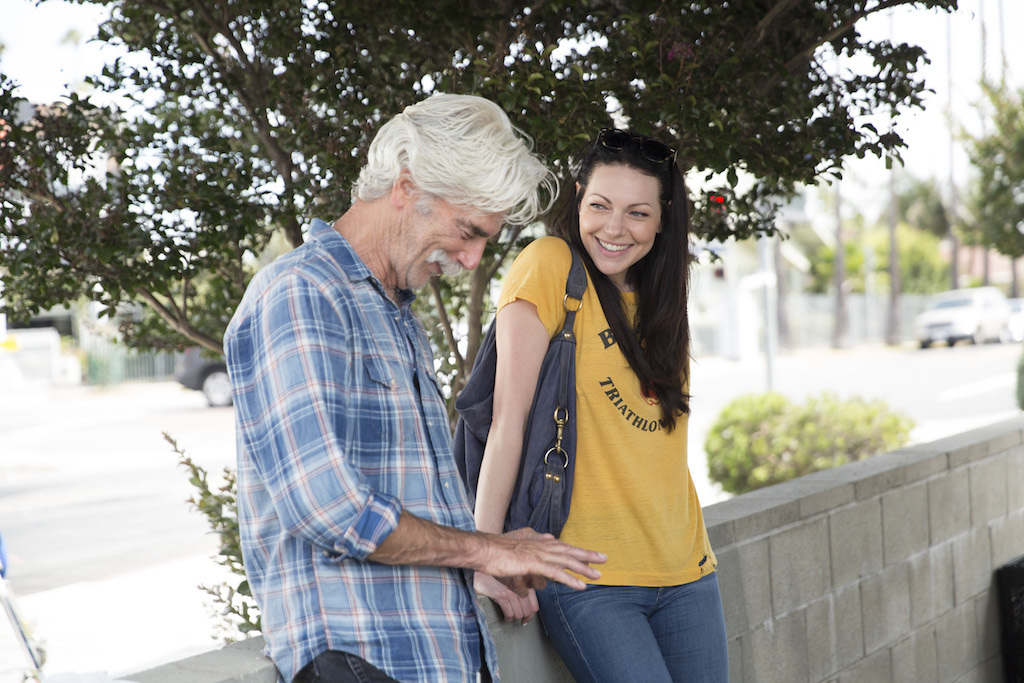
Sam Elliott has the kind of screen presence people feel compelled to liken to a well-worn piece of clothing: He’s a perfectly faded pair of jeans, a broken in leather jacket, a confidently cocked cowboy hat. As for his voice, well, liquid analogies are usually best: Smooth bourbon, a hint of molasses, a touch of aged scotch. Elliott has been the quintessential laconic cowboy in movies since the ’60s, but he’s branched out lately, in films like I’ll See You In My Dreams and Grandma, where he plays an elderly lover, a symbol of the time (real or imagined) when men were men and knew how to treat a lady. It makes sense. At 72, he still looks great: Sinewy and lean, with that famous bushy mustache and, now, a glorious mane of white hair.
The Hero director Brett Haley, who also directed I’ll See You In My Dreams, is obviously a fan of Elliott’s and this film is a valentine to him, an actor’s showcase, Elliott’s answer to Crazy Heart and Tender Mercies (although not as good as either of those films).
He plays a less successful version of himself, Lee Hayden (great name), a washed up actor who was a major star of westerns in the ’70s. Now Lee does voiceovers for barbecue sauce and gets high with his friend and drug dealer Jeremy (Nick Frost). One day, while over at Jeremy’s house, he meets the alluring Charlotte (Laura Prepon), a stand-up comedian. They flirt, although Lee is just being wistful, he knows she’s too young for him. Then they bump into each other again, at a taco stand, flirt some more, and this time she encourages him to ask her out. Turns out, she digs older guys.
It’s fun to watch Prepon and Elliott dance around each other—they’re both excellent screen flirts—but I never fully bought the relationship, and the film doesn’t bother to explain why this young woman would be interested in a man old enough to be her father. She’s not given much interior life—she’s just one of many Big Things happening in Lee’s world.
Lee takes Charlotte to a banquet where he’s given a Lifetime Achievement Award by some sort of western appreciation guild. In the limo beforehand, he agrees to let Charlotte spike his drink and by the time he gets on stage to accept the award, he’s loopy, cheerfully telling the crowd that they all deserve lifetime achievement awards and inviting one stunned woman to join him on stage, as the crowd chants her name. The moment goes viral, sparking a renewed interest in Lee’s career.
But there’s one snag: Lee has recently been diagnosed with pancreatic cancer and he can’t bring himself to tell anyone: Not his ex-wife (Katharine Ross, Elliott’s real-life wife), not his estranged adult daughter (Krysten Ritter), not even Charlotte.
In the film’s best scene, he auditions for the role of a heroic father figure in a space cowboy film. Earlier, while practicing on Jeremy’s deck, he absolutely nailed the part. But now, reflecting on how he let down his own daughter—he was a distant and mostly absentee father—and knowing that he’s probably too sick to be cast, he breaks down, flubbing the audition with a surfeit of emotion, before apologizing and rushing out.
The Hero is a minor film. It ticks off too many obvious milestones—Lee’s diagnosis, his viral moment, his unlikely romance, his attempts to reconcile with his family—but it goes down (dare I say) smoothly. Haley gave Elliott the gift of this career-defining role and Elliott returns the favor by giving a career-best performance.
